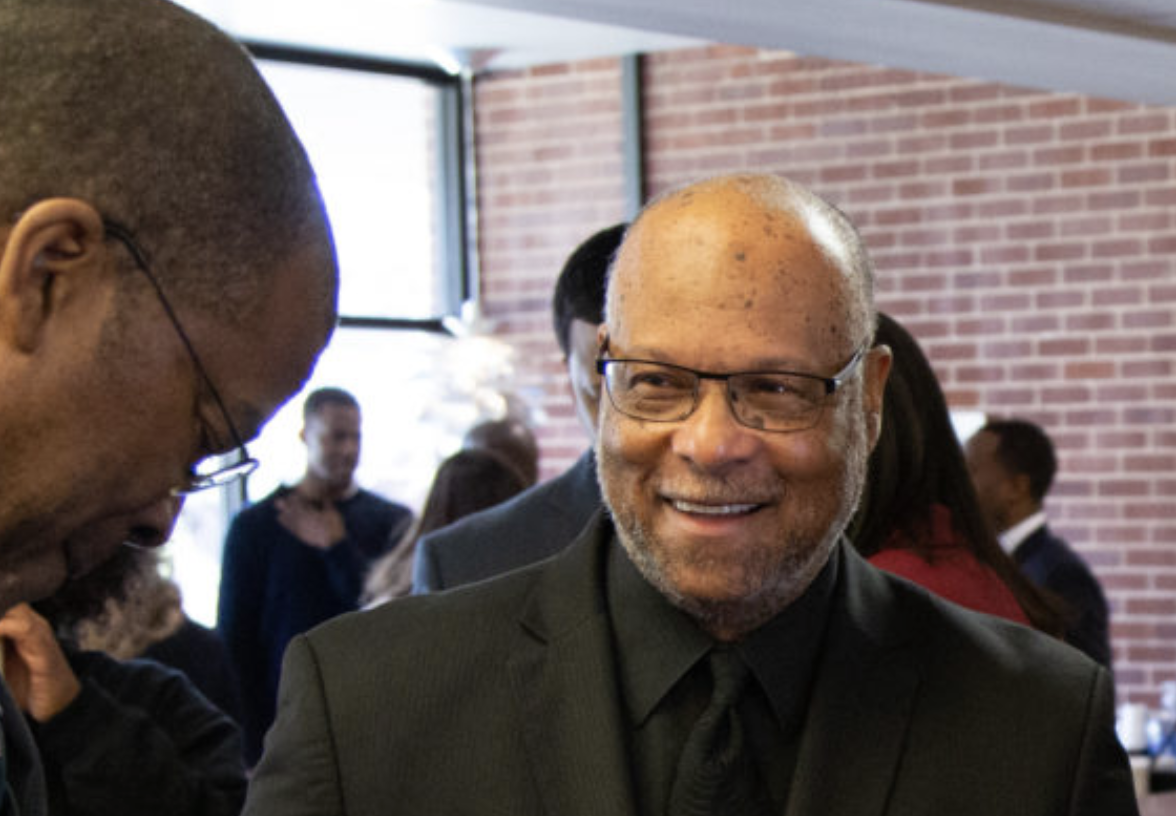In the past, Oklahoma Christian University was put on the hot seat for a lack of racial diversity among faculty and staff, most notably professors.
Due to a petition started and signed by students, Oklahoma Christian created an African American history minor, which begins this year with the class American studies in racial and ethnic diversity. The class is taught by Robert Edison, a visiting professor from Dallas, TX who worked in the Dallas Independent School District for over 30 years before retiring in 2017.
Edison is also part of the “OC 18,” which was recognized for the injustice brought against them by the university back in 1969.
In a recent interview with the Talon, Edison discussed why he decided to come back to Oklahoma Christian to teach and what students can expect to learn from his course. This interview has been edited and condensed.
What emotions are you feeling about teaching a class at Oklahoma Christian? Are you excited?
Yeah, I am. I enjoy more of the classroom phase then this phase of learning how to work Blackboard and everything.
What is your class all about?
I was asked to help design an African American studies minor, and I thought it would be good to start out with an African American studies class and deal with philosophy and race because African American history, probably more so than any other history, has been impacted by race.
What is the difference between African American studies and African American history?
It’s different in the sense that I won’t be dealing with a chronological study of African American history. That’s the next class. What we will be doing in this class is looking at aspects of African American life such as economics, politics and culture from that perspective.
What did you do before coming to Oklahoma Christian?
I worked with the Dallas Public Schools for 44 years. I also served as director of the Avery Research Center for African American History and Culture at the College of Charleston. I worked at Southwestern Christian College teaching African American literature and then at the University of Texas at Arlington teaching American history as an adjunct.
Do you think this minor being offered is a step in the right direction for Oklahoma Christian becoming more inclusive and diverse?
I think it is evidence that the administration is being responsive to student requests. This request was made by students, they petitioned, and I think over 200-something students signed the petition. So, this shows that the administration is responsive to the students’ wants and desires to make the campus more inclusive, not only with faculty but also with curriculum and course offerings.
Was it hard to come back to the university that you had such a traumatic experience at with the “OC 18”?
It wasn’t hard for me coming back because I was only here for seven months because I was a transfer. So, I didn’t really have the connections to the university that some of the other students had. I looked at what I had to offer, and being retired, if you don’t use it you lose it. I thought about the resources I had being boxed up and thought to myself, “This is probably the final part of my legacy, making a contribution to the university and students here.” Then I had to ask the question, it’s not so much about me, but what will happen to the program if I don’t come, and what will happen to the students’ request? Would it be delayed another year or whatever?
That was really unselfish of you.
Well, I have this little rhyme that I often use, “In this torensome world at last, once and only once we pass, if a kindness we may show, a good deed we may bestow, let us do it while we can before we may not come this way again.” It is kind of my guiding principle.
What was one of your main reasons for pushing for African American studies to be taught more widely in schools?
Based on my own personal experience. I grew up in Louisville, KY, and I started kindergarten in 1954, the year of the Brown decision. Louisville was one of the first southern cities to integrate that next year. They didn’t delay integration. So, from 1955 until I graduated in 1968, I attended predominately white schools, and I only had one black teacher that entire time and was taught no African American history. I realized what I missed out on as a student, and I think every student regardless of their ethnicity should have the opportunity to study their history and the contributions their people have made to society.
What would you say to someone who is on the edge of taking this class to sell them on taking it?
I don’t teach the course from the victim’s perspective, which a lot of people shy away from. I teach it from the perspective of resistance and resilience.
Why is that?
Because once you learn how one group has overcome obstacles and become successful, it will help you in your life to see how little resources they had and still overcame and knowing that you can do it in your life. And also, African American students don’t want a course where they’re victims. So, I changed the way I taught it from that perspective. They know they’ve been victimized in the past, but they want to know that in spite the fact they were denied the opportunity to get an education and that within a decade you had doctors, lawyers and educators. When you look at it from a resilience perspective, you begin with pointing out the roadblocks they had to go through, but it didn’t stop them.












Be First to Comment